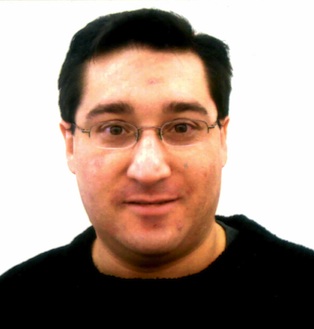 Last June, when I was affiliated with, ahem, a competing publication, I publicly chided the World Economic Forum for shutting the press out of its first-ever mobile healthcare event. “It seems as if the industry is in danger of being co-opted by the business community's elites, possibly to the detriment of small entrepreneurs, consumers and the spirit of transparency,” I wrote.
Last June, when I was affiliated with, ahem, a competing publication, I publicly chided the World Economic Forum for shutting the press out of its first-ever mobile healthcare event. “It seems as if the industry is in danger of being co-opted by the business community's elites, possibly to the detriment of small entrepreneurs, consumers and the spirit of transparency,” I wrote.
It took a lot of nerve, I thought, for an international organization to come to this country—the meeting was held in La Jolla, Calif.—invite several U.S. government officials, then not allow media through the doors.
The World Economic Forum, of course, is the organization behind the exclusive meetings on global business and policy that take place each winter in Davos, Switzerland. This billionaire boys’ club convened last week in the Alpine resort to discuss the world’s problems.
I’m just going to assume that my invitation to Davos got lost in the mail. But at least this conference had some degree of transparency and I can say that I learned a bit about mobile health. We can thank, in part, Qualcomm CEO Dr. Paul Jacobs.
Jacobs chairs the WEF Global Agenda Council on the Future of Mobile Communications, and was the impetus for the La Jolla meeting. Last week in Davos, Jacobs was part of a high-level panel on preventing and treating chronic disease, and Qualcomm webcast the session live.
How high-level? Other panelists included UN Secretary-General Ban Ki-moon, Merck Chairman Richard Clark, General Mills Chairman and CEO Kendall Powell and Julio Frenk, dean of the Harvard School of Public Health. (How elitist was the summit? The session’s moderator, CNN’s Dr. Sanjay Gupta opened by addressing, “Your excellencies.” Dr. Francis Collins, director of the National Institutes of Health, had to introduce himself when asking a question from the audience.)
Jacobs talked about regulation of cell phones as medical devices and the embedding of wireless technology in existing devices. He also addressed how wireless technologies can aid in healthcare data collection in developing countries. “Because the regulatory burden isn’t there [in developing countries], we think that we can demonstrate efficacy and we can demonstrate that these are actually self-sustaining economically, and then bring those cases back [to the developed world],” Jacobs said
He added that the World Economic Forum could be “very helpful” in communicating to Western leaders news of successful projects in low-income nations.
OK, so that wasn’t exactly great depth. Jacobs did mention a Qualcomm-sponsored program to provide remote speech therapy over a 3G wireless network for rural Peruvian children who have had surgery for cleft palate.
But if you want real detail on some of the innovation on display in Davos, it might help to talk to some of the entrepreneurs lucky enough to score an invite, such as Proteus Biomedical CEO Andrew Thompson. Silicon Valley technology blogger, Robert Scoble, who got a coveted press pass, did speak to Thompson, and posted audio of his fascinating interview.
“We make medicines that talk to your cell phone,” Thompson said.
That’s right, Proteus makes pills with additives that activate when swallowed, then send signals through the body like a heartbeat that can only be detected by a sensor worn on the body. The sensor, embedded in a bandage, can tell what medications the patient takes, and also detects heart rate, respiration, temperature, sleep patterns and even body angle, then transmits data to a phone via Bluetooth.
The product hasn’t been approved for use in the U.S. or Europe yet, but Thompson said tests are underway to prove the effectiveness. He thinks Proteus already has the business model down.
“A song to Apple is a drug to Proteus,” Thompson explained. With the iPod and iTunes, Apple made music more personal and customizable, and monetized the hardware, the system and the data. The cost to the consumer has gone down even though Apple’s profits have skyrocketed. That’s exactly what Thompson expects the smart pill to do to the pharmaceutical business.
Now that’s the kind of technology I hoped to learn about when I started enquiring about the La Jolla meeting. Doesn’t the world at large deserve to discover what international business and policy leaders are learning?

















